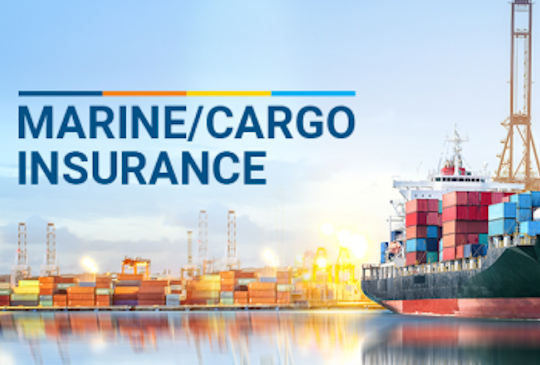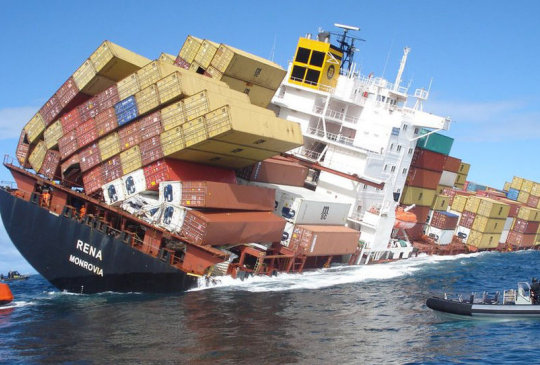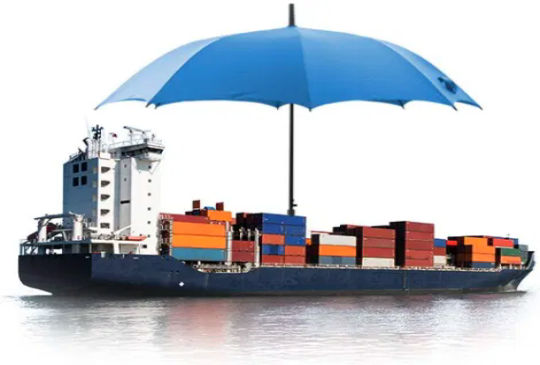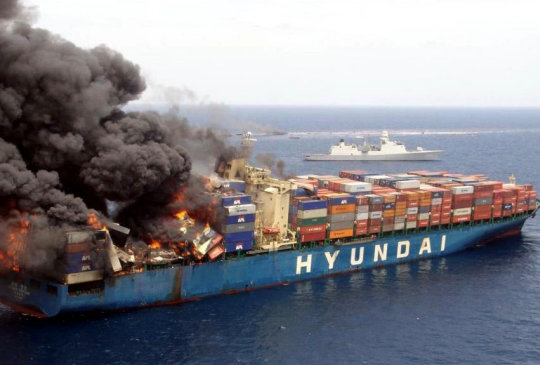Cargo Insurance and disaster mitigation
Cargo insurance is the method used in protecting shipments from physical damage or theft. In fact, insuring cargo ensures that the value of goods are protected against potential losses which may occur during air, sea or land transportation.
The movement of goods across the world comes with certain risks. These risks are mitigated through insurance coverage since there is no guarantee that damage or loss will not occur.
Canadian Star Line Shipping’s flexible model, using only quality carriers, means you benefit from improved service levels, greater flexibility and time-definite deliveries. Our expertise in transport management and planning allows us to design a solution that meets your needs and also quickly respond to any event disruptions, such as weather.
Why is cargo insurance needed?
Legally, all carriers must carry a minimum amount of insurance, known as carrier liability. However, carrier liability provides very limited coverage, and anything from natural disasters to vehicle accidents or even acts of war could damage your cargo. Therefore, shippers can request cargo insurance to protect their goods from loss, damage, or theft while in transit. Generally, goods are insured while being stored and while in transit, until they reach the buyer.
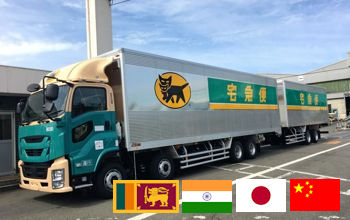
Logistics Ground in Asia Pacific
- Operating in all major countries and borders
- Extensive services including: linehaul, Pick Up and Delivery (PUD), home delivery, milkrun, cross-border, courier and rail
- Singapore to Shanghai cross-border service
- China to Europe railway service: Innovative service balancing speed and cost; faster than Oceanfreight, cheaper than Airfreight
- Linehaul China: 700 trucks a day, 6.25 million pallets moved yearly
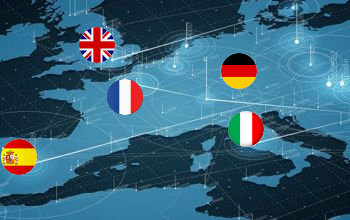
Transportation across Europe
- Multi-sector and multi-mode capabilities
- Working with Pan-European players and niche specialists
- Central control and network monitoring through the Control Tower
- 50,000 tons managed a year
- 4,000 shipments a year
- 20 transport partners
- Groupage/LTL/FTL
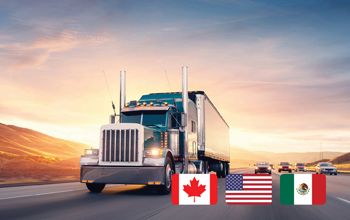
Logistics Ground in North America
- Supports U.S. Domestic network through LTL/FTL services
- Over 250 scheduled linehaul segments per year
- Seven hubs and 20 stations
- 75 thousand miles a month
- 100 loads a month
To learn more about our ground transportation operations in North America and how we can support your business, please contact us
Different types of cargo insurance policies
There are different types of cargo insurance policies, some going by names such as “all risks,” “broad form,” “legal liability,” and “motor truck freight.” Regardless of what the name might imply, none of these policies provide complete protection against Carmack Amendment and common law liability. Policies exclude coverage in many different ways. For example, certain types of cargo are excluded, only specific equipment and terminals are covered, losses caused by certain events are not covered, or coverage applies only if a service is performed in a certain way.
Overall, it’s crucial for shippers to document their cargo’s value in case of disputes, losses, or damages. It may also be necessary to work with a lawyer and insurance agent to fully understand your policy and make sure you are protected.
Types of Cargo Insurance
Cargo insurance can be taken for international as well as domestic transportation. At the same time, this is really difficult to standardize and control without the proper cooperation from countries and states due to the varying nature of this insurance. Under these variations, this insurance can be categorized into following classifications:-
Land Cargo Insurance : This insurance provides coverage for all the land transportations covering trucks and other small utility vehicles. The coverage aspects are theft, collusion damages and other related risks. This insurance is domestic in nature and normally, operates within the boundaries of the nation.
Marine Cargo Insurance : This insurance covers transportation carried our either in sea or by air. Here, means of transportation and goods are covered from damage due to cargo loading/unloading, weather contingencies, piracies and other relevant issues. Mostly, this insurance covers international transportation. Under these insurances, there are some policies which can help you in understanding the concept of cargo insurance in a profound manner.
Cargo Insurance Policies
Open Cover Cargo Policies : When insurance holder opts for coverage against various consignments, then open cover cargo policies get activated. These policies are segmented in two categories namely renewable policy and permanent policy. Renewable policy is required for a particular value requiring renewal after policy expiration. Most of the single trip or voyages fall under this category. Permanent policy can be drawn up for a decided time period permitting countless shipments in that period.
Specific Cargo Policies : When a company approaches an insurance company or broker for insuring a particular consignment, then it can fall under the category of specific cargo policies. These policies are also termed as voyage policies because only shipments are covered under them.
Contingency Insurance Policy : There are certain cases where customer, not the seller is responsible for insuring the goods against loss or damage. There are perils associated with it if goods get damaged during transit and customer refuses to accept them. In few cases, some customers do not insure the goods and tend to avoid the liability. Under such circumstances, affected sellers can seek rectification with the help of the legal system. This can be very costly for them and sometimes, they may lose the case. Therefore, sellers are advised to go for contingency insurance which have a very less premium rate. For testing and verification, sellers need not tell about it to their customers.
Benefits of Cargo Insurance
Cargo insurance covers transits carried out in water, air, road, rail, registered post parcel and courier. Following aspects are covered under the benefits of this insurance:
All Risk Coverage
This coverage provides extensive protection against damage or loss due to external factors. Though, this is called all risk coverage but still, people should know the aspects included and excluded in the policy. Under all risk coverage, included aspects are:
- Damages due to inappropriate packing
- Infestation
- Cargo abandonment
- Customs rejection
- Employee’s dishonesty
Free From Particular Average Coverage (maritime insurance related)
“Free of particular average” coverage clause excludes coverage partial losses to the cargo or to the hull except those resulting from stranding, sinking, burning, or collision. Another important aspect of this clause is that the shipper does not pay for minor losses (pre-decided percentage) and is only held liable in case of significant losses to the cargo. This insurance coverage belongs to special category and covers particular perils only. There is difference in coverage depending upon the storage location of the cargo. In this policy, following perils are included:-
- Collision
- Heavy weather
- Sinking
- Derailment
- Non-delivery
- Theft
- Fire
- Earthquake
General Average Coverage
This coverage is basic requirement in the marine cargo transits. More specifically, it covers only partial loss occurred to the shipment. It requires all the other cargo holding owners on the ship to pay compensation to the periled cargo owner.
Warehouse to Warehouse Coverage
This coverage is applicable when shipment is unloaded from the ship and it gets transported to the customer’s warehouse. Insurance companies are very particular about compensating only the insurance holder’s cargo, not other owners’ cargos.
So, Should You Request Cargo Insurance?
Now that we’ve explored what cargo insurance is, as well as how coverage works; hopefully, you realize its importance when shipping goods. If not, think of the consequences of not having cargo insurance. What would happen to your company if an entire shipment were lost? What if your shipment is being transported via container vessel and the ship sinks? Or, god forbid, a truck gets in an accident with your vety important freight? Your company is responsible for a share of the losses. How would that affect your bottom line?
Accidents happen; therefore, shippers need to request cargo insurance to protect their business when errors occur. If you want help on how to know if cargo insurance is for you, reach us out at Canadian Star Line Shipping today and we’ll help you decide!
Frequently Asked Questions
Still open questions?
Yes, cargo insurance does have limitations. For example, when shipping via truck in the United States, cargo insurance does not provide protection against all losses a motor carrier may be liable for under the Carmack Amendment or common law. There is not a single, standard form of cargo insurance that a carrier can buy and be fully protected. Similarly, a certificate of insurance stating that a motor carrier has a specific amount of cargo insurance does not mean that the shipper’s or broker’s valid claim will be covered by that insurance.
There are different types of cargo insurance policies, some going by names such as “all risks,” “broad form,” “legal liability,” and “motor truck freight.” Regardless of what the name might imply, none of these policies provide complete protection against Carmack Amendment and common law liability. Policies exclude coverage in many different ways. For example, certain types of cargo are excluded, only specific equipment and terminals are covered, losses caused by certain events are not covered, or coverage applies only if a service is performed in a certain way.
Overall, it’s crucial for shippers to document their cargo’s value in case of disputes, losses, or damages. It may also be necessary to work with a lawyer and insurance agent to fully understand your policy and make sure you are protected.
You can reach us on either info.ca@canadianstarlineshipping.com or info.lk@canadianstarlineshipping.com.
Marine insurance covers the loss or damage to ships, cargo or shipment, terminals and any transport by which the goods are acquired, transferred and held between the place of origin and the final destination. … Hence, cargo insurance is more specific in nature and offers coverage to shipments against various perils.
We are expanding globally and hoping to hire more talents. Visit us time to time and see if we have an opening
You benefit from our experience in delivering effective solutions to the complex global supply chains of some of the world’s biggest corporations.
You benefit from every innovation, whether it involves a simple extension to our Air and Ocean Freight products, whether it means a development in warehousing.
All of which explains why you’ll find the team of outstanding support at TransCargo ready to apply their passion for solutions in support of your business.

